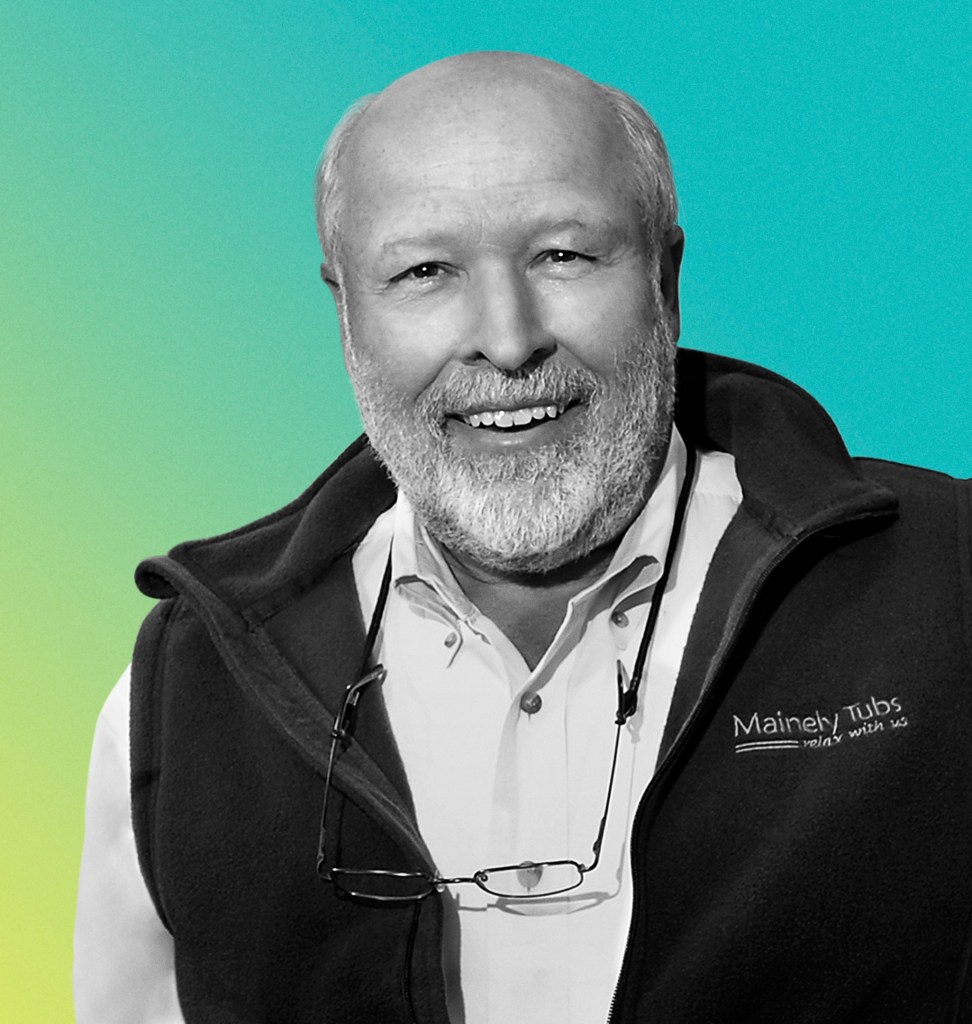Whenever I’ve taken a Myers Briggs personality test, the results have suggested that I stay away from work in sales — that I was more fit for something administrative in finance or accounting.
As I’d later find out, those tests were very wrong.
In 1978, I concluded business school and was offered a job at the Society for the Protection of New Hampshire Forests, a nonprofit with a staff of 15 and a modest budget. It was the first job I had that really allowed me to see and understand the full breadth of an organization, not just programmatically but from the board level down. I was in a neat position, because I was working for a cause that I appreciated. But it also allowed me to start thinking about what sort of systems and controls were needed to accommodate the growth the organization sought. And it forced me to try my hand at sales.
This experience would come in handy a few years later in 1993, when I bought a failing hot-tub business and transformed it into a prosperous one that now boasts 22,000 customers and preponderant market share.
Grass roots
As Myers Briggs suggested, initially I stayed away from sales. So I didn’t have any experience with it when I joined the Forest Society of New Hampshire. And I didn’t expect I’d need it.
I was brought on to put the needed administrative systems in place. The organization never had any financial controls or budgeting. After putting these measures in place, the nonprofit experienced a much stronger presence, which taught me how important it was to build these systems into a company or organization, something that would come in handy later.
Any small business or nonprofit needs skill sets and systems to understand how to be successful. Most nonprofits are only as successful as their willingness to facilitate an environment of teamwork and embrace its mission. If the mission is unclear, or if the teammates can’t work harmoniously together, an organization can easily fall apart.
Eventually, the work I did broadened to include talking to the public to raise funds and boost membership, and helping to spread the organization’s message about land conservation and good forestry practices. As it turned out, I excelled at sales. That experience helped me realize that if I had any sales opportunities in the future, I would be able to do the job — and do it well.
Leap of faith
The economic realities of raising a family on a nonprofit salary were daunting at best. Eventually, I left the nonprofit world to become the financial officer of a growing for-profit mapping company.
Then in 1993, I decided to buy Mainely Tubs — when it was just weeks away from failure — from a woman who had moved to Florida and become an absentee owner. It was propitious timing that I came along and took interest, even though I had no experience with pools or hot tubs. What I did have was experience running a smaller organization, and I had a sufficient background to understand what I would have to deal with in running my own company.
It took a big leap of faith — and the support of a very loving wife. In the beginning, my staff consisted of me and a part-timer. My kids even delivered the hot tubs. What seemed hard at the start was to learn the intricacies of an industry in which I had no knowledge or experience. But in retrospect, that paled in comparison to trying to form a team of long-term employees willing to work on a mutual vision.
We were 10 minutes from L.L. Bean, and I wanted to run my business like that company, because it offers superior customer service, among other things. I was thrilled that they weren’t in the hot-tub industry. A few years ago, I actually sold a second hot tub to the firm’s CEO, and I told him I wanted to be the L.L. Bean of hot tubs. I said, “I hope you don’t mind.” His response: “I wouldn’t have bought my second one from you if you hadn’t done so well with the first.”
At the nonprofit, I recognized the importance of interpersonal relationships and sensitivities to human needs and customer needs. My best take-away from the nonprofit was how to be a better leader by fostering teamwork.
In a retail sales environment, I felt that a compensation system based largely on commission was less likely to encourage teamwork than one that rewarded members tied to the company’s success. I believe this may be one of the key reasons we now have grown larger than most multi-store operations in major markets around the world.
